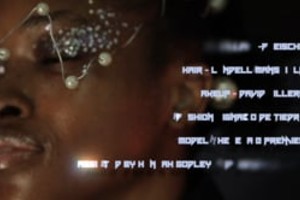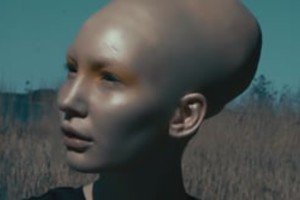The singer and songwriter Moxie Raia started to give us a glimpse into the future when she released her single “Love Language”. We were not surprised when she captured us completely this time with her newest release “Not the One”. Looking back at her journey as an artist we can now see that Moxie is giving us a new version of herself where she is in control over her visions and which face, she wants to show fearlessly for the world. It's clear that she is here to stay.
You just released the single “Love Language”. What inspired you to write that song?
I co-wrote the song with two people and we were really writing about a girl who is very self-assured, confident, trusting, and committed in her relationship but also very focused on work. Her partner is always worried about what she is doing, where she is, and with whom. The partner is saying” it is just my Love Language”, to be all over you. What the girl is feeling is that Love Language is making her worry because usually, it is the people that are always possessive over you, that are not being honest themselves.
Listening to your song, it sounds like you were dating a narcissist, do you think your music could help someone that is in a similar situation?
Yes, I think so, because this is a situation that is more normal than we think and as a listener you can relate in some way and not feel alone. Sometimes you can also be in denial of what is happening in the relationship, or maybe you just don’t understand the situation and only blame it on yourself. One of the biggest lessons I learned from that past relationship, was that when someone is so possessive over you and super worried about what you are doing all the time, they're usually the ones messing around.
I love the video to Love Language. It is so different from all of your past music videos, is this the new you?
Totally, the past two years I learned to let my soul free. I’m in creative control now, and I have a relationship with my label and management where I can execute my visions and not have to water it down or change it or not be completely myself.
What is the most important thing you need in order to get into a creative space?
I like to keep my mind in a positive state. Even though I’m creative when I’m sad, in order to create music, I need to feel that connection with the universe or a higher power. That energy is what inspires me to create.
A typical day, something that you can’t live without?
That connects to the previous question. I definitely need quiet; I definitely need time alone and that is when my most creative thoughts come. So, whether that’s in the morning or after a really long day, I need at least two hours a day where I'm in my own thoughts, my own quiet.
Do you have a moment where you knew your life would drastically change for you as an Artist?
Recently I have connected with so many amazing people that have become my team. I am so grateful for that because we’re all on the same page so it feels really powerful. I’m really excited for all that’s coming and I feel that shift happening.
What do you want your listeners to feel when they hear your music?
I want them to feel their own inner power and strength. I think humans are way more powerful than they are brought up to be - I have this superhero alter ego that I sometimes rely on to remind myself of my own higher self. Her name is Carbon, and I hope some of her energy comes through in the music.
Who is your biggest icon growing up, and now?
I have had so many growing up who even inspire me today - Stevie Wonder, Al Green, a lot of Motown music. As I got older, I got more into Lauryn Hill, Jazmine Sullivan and Kanye West. Those were and still are some of my biggest influences.
Where is the weirdest place you came up with lyrics or melody?
I often come up with a lot of things when my brain is occupied doing something else. So, like when I'm driving or when I'm cooking. Music is on my mind nearly 24/7 but if I’m doing something else like taking a shower, driving, or cooking my brain is totally off music so better ideas come.
How would you describe the way you dress and do your makeup; does it shape you as an artist?
I love to mix masculine and feminine energy in the way I dress. There is something about that balance to me that feels really good.
How do you navigate in a music industry that is mostly dominated by men?
I just remind myself that women truly own all the power. Yes, there are a lot of men in high positions but women are driving forces in those same spaces. It's something that needs to change and we are starting to see this shift happening. However, I don’t let it decide or disrupt my mission and purpose.
Did you stay in quarantine, if so, you must have had a lot of time to reflect on what you want for yourself this next decade, anything you want to share?
I definitely did a lot reflecting over quarantine. I have felt a shift within myself - I feel more present, and grateful for what I do have. That faith is the foundation I am building on top of now.
To listen to: Not the One






















